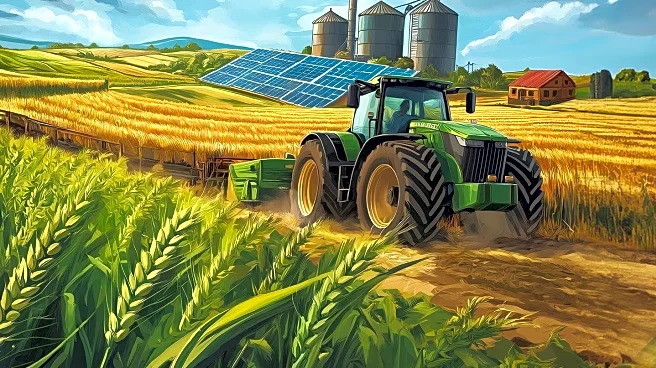What's Happening?
Organic farming is gaining momentum as a sustainable agricultural practice, with new innovations and methods being adopted to address environmental challenges. The focus is on using natural inputs and ecological processes to cultivate crops, manage soils,
and foster biodiversity. Key practices include crop rotation, organic fertilizers, biological pest control, and reduced tillage. These methods aim to improve soil health, increase biodiversity, and enhance climate resilience. The adoption of organic farming is seen as essential for ensuring long-term food security and mitigating climate change impacts.
Why It's Important?
The shift towards organic farming is crucial in the context of climate change and the need for sustainable food production. By reducing reliance on synthetic chemicals and promoting biodiversity, organic farming can help preserve environmental integrity and improve soil health. This approach supports local farmers and rural communities, offering economic benefits through access to premium markets. As consumer demand for sustainable and traceable food increases, organic farming is positioned to play a significant role in the future of agriculture.
Beyond the Headlines
The integration of technology, such as satellite monitoring and AI-driven advisory, is enhancing the efficiency and scalability of organic farming. These tools provide real-time insights into crop health and soil conditions, enabling farmers to optimize resource use and improve yields. The use of blockchain for product traceability ensures transparency and builds consumer trust. As organic farming continues to evolve, it is likely to drive significant changes in agricultural practices and policies, promoting a more sustainable and resilient food system.
















